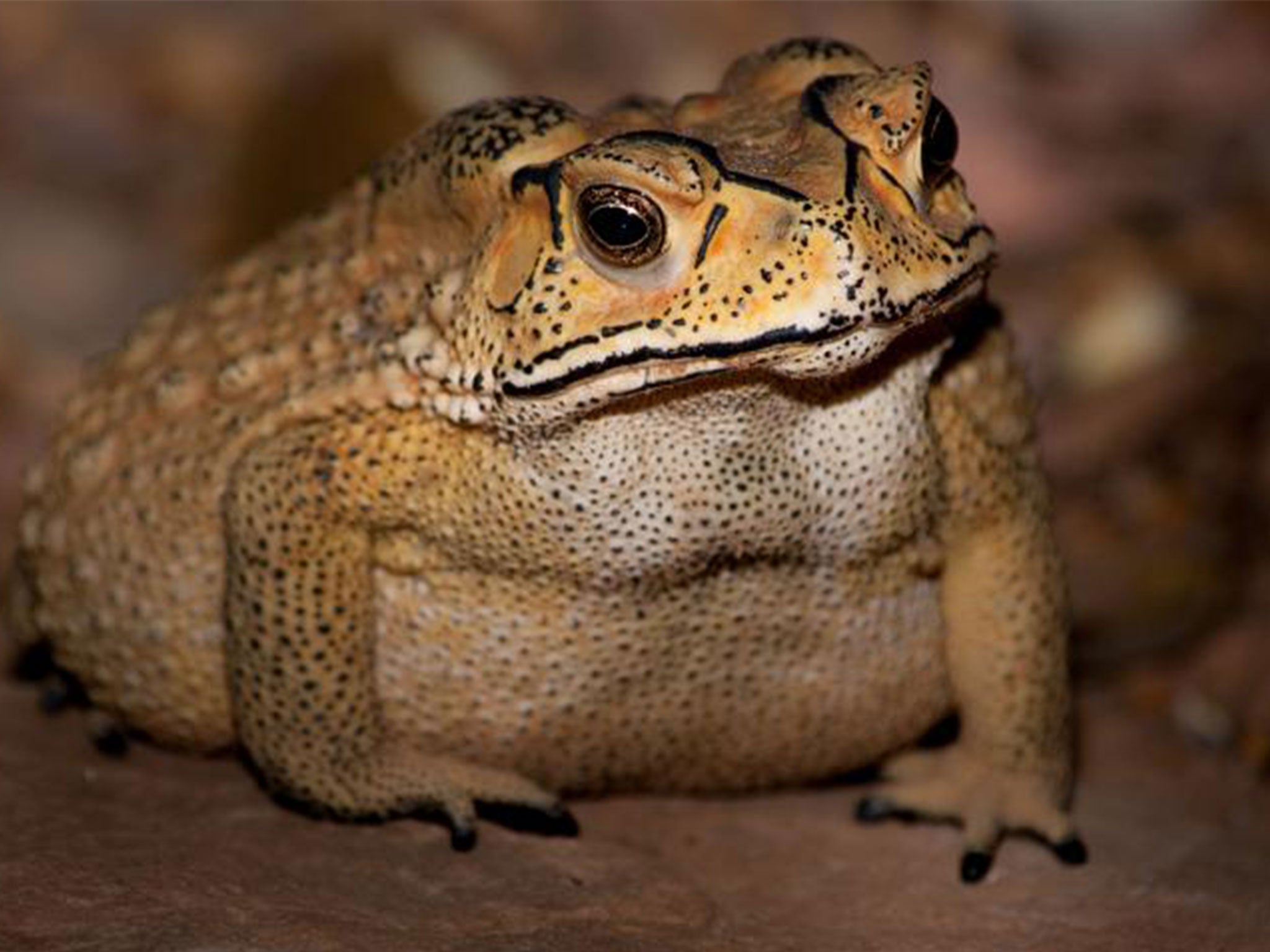Deadly toxic toad invasion putting Madagascar wildlife at risk
Invasive species from Asia is poisonous to all potential predators on its new island home, scientists find

Your support helps us to tell the story
From reproductive rights to climate change to Big Tech, The Independent is on the ground when the story is developing. Whether it's investigating the financials of Elon Musk's pro-Trump PAC or producing our latest documentary, 'The A Word', which shines a light on the American women fighting for reproductive rights, we know how important it is to parse out the facts from the messaging.
At such a critical moment in US history, we need reporters on the ground. Your donation allows us to keep sending journalists to speak to both sides of the story.
The Independent is trusted by Americans across the entire political spectrum. And unlike many other quality news outlets, we choose not to lock Americans out of our reporting and analysis with paywalls. We believe quality journalism should be available to everyone, paid for by those who can afford it.
Your support makes all the difference.Scientists fear an invasive species of toad could wreak havoc on Madagascar’s ecosystem – because no predators on the island can withstand the toxins secreted in its skin.
Asian common toads are only thought to have arrived in the country as stowaways on ships in 2011, but are already causing concern for Malagasy authorities.
The species has spread rapidly and its population boom shows no sign of slowing down thanks to the isolated nature of the island.
Madagascar has no native toads and while populations of predators in Asia have evolved to withstand the animal’s poisonous skin, conservationists have feared the county’s indigenous species would not have the same resistance.
Now, it appears their worst fears have been proven correct by an international study by experts from Bangor University, the Liverpool School of Tropical Medicine, the University of Braunschweig and the Natural History Museums of Munich, Stuttgart and Turin.
In research published in the journal Current Biology, scientists analysed the genes of 27 snakes, two lizards, two frogs, eight mammals and 28 birds that could potentially feed on the toads.
However, only one native Malagasy species – a rodent known as the white-tailed antsangy – showed evidence of any kind of resistance to the toxin.
“Our findings confirm that the invasive toads are likely to have a significant impact on many Malagasy endemic species, adding to the country's existing conservation problems and potentially endangering many of Madagascar's most iconic endemic species, such as tenrecs and the enigmatic fossa, as well as a plethora of other species,” said Nicholas Casewell, of the Liverpool School of Tropical Medicine.
Researchers are now concerned the Asian toad’s impact could be as disastrous as the introduction of the cane toad into Australia some 80 years ago.
First released into the wild in an attempt to control insects feeding on sugar cane crops, the amphibian spread across huge swathes of the country.
The species is thought to have depleted populations of native animals it preys on, while also killing would-be predators who are poisoned by its toxins.
“In Australia, the introduction of cane toads has caused profound perturbation to many ecosystems by removing key predators from local food webs with their toxins,” said Dr Wolfgang Wüster, of Bangor University’s school of biological sciences.
“Similar effects are likely to occur in Madagascar, where toads were never present before, as well; predators that frequently feed on toads and do not rapidly learn or evolve to avoid them are likely to become much rarer or possibly extinct.”
Join our commenting forum
Join thought-provoking conversations, follow other Independent readers and see their replies
Comments